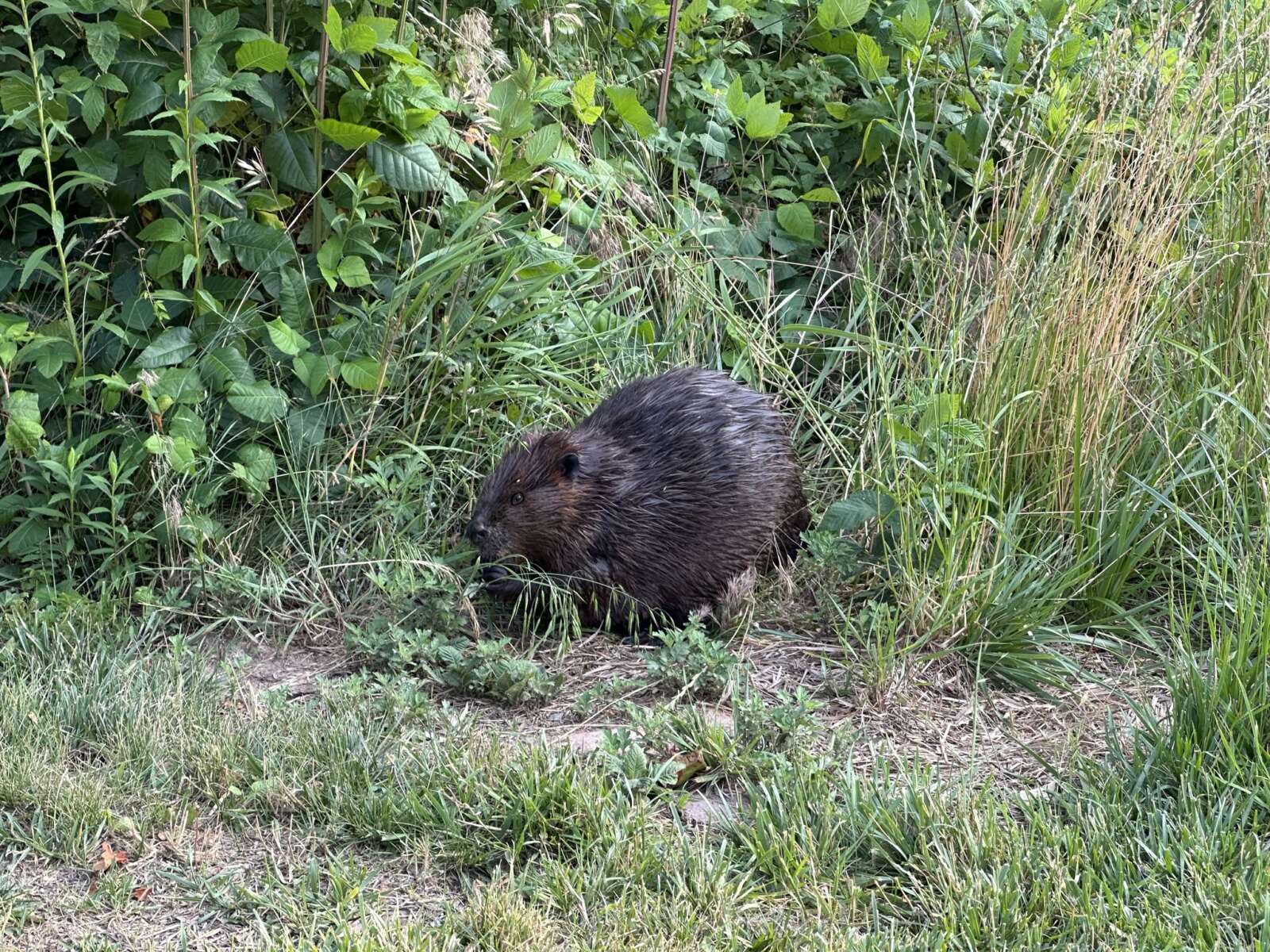
This is a sponsored post by veterinarian Elizabeth Arguelles, owner of Just Cats Clinic at Lake Anne Plaza. She writes weekly on Reston Now.
Though cats can generally live longer than other household pets, they actually age at a faster pace than their human companions. By the age of 8, a feline is already a senior citizen, meaning that a cat that lives to 20 or older will spend more than half of its life as an “elderly” member of your family. Geriatric cats, age 15 and older, can live quality years with a little extra care in their health care routine both at the vet’s office and at home.
Your vet may start by recommending that your cat undergo basic geriatric wellness testing as part of its regular checkups. This is designed to detect signs of early or subclinical diseases in what may otherwise appear to be a healthy cat. Senior cats, ages 8 to 14, need preventative exams once every six months, or twice a year. Cats that are 15 and older are considered geriatric and ideally need exams once every three months, or four times a year.
Geriatric wellness exams can include the following: lab work (including a biochemistry, complete blood count or CBC, urinalysis, and thyroid check), pain assessment, dental check, and general exam to look for overall health and changes in mobility.
Blood work: Blood work is potentially the most important part of your geriatric cat’s health care routine. It provides an overall view of your cat’s general health and function, and it can help detect diseases before they are outwardly apparent symptomatically.
- Biochemistry profile: This provides information about how well various internal organs are working. The biochemistry profile helps identify metabolic diseases and other illnesses, including liver and kidney functions, pancreatitis, diabetes, etc.
- CBC: This describes the number, shape and size of the various cells in the cat’s blood. It also shows if there are any anomalies. This test is comprehensive and measures both the white blood cells that fight infections and the red blood cells that transport oxygen through the body.
- Thyroid function and hormone testing: This ensures that the cat’s thyroid is producing hormones normally. As in humans, the hormones produced by this gland are vital to a cat’s health. If the thyroid produces too much, it can lead to hyperthyroidism, which can strain the heart if left untreated.
- Urinalysis: This examines the chemical components and solid materials present in the cat’s urine. With this test, your vet will also be able to evaluate the cat’s overall kidney function. He or she can also assess whether there are infections or inflammations of the urinary tract or kidneys. Because kidney disease is extremely common in older cats, make sure to have this done regularly as your cat ages.
General Health Exam and Pain Assessment: Routine pain assessments are an important part of your senior or geriatric cat’s health care plan. Arthritis and other joint disease can cause stiffness and changes in mobility. If your geriatric cat develops joint disease, there are different ways to increase their quality of life by making simple lifestyle changes for them. Some changes that can help include:
- Moving the litter box to an easier location
- Placing bedding, litter box, and food and water access to the same level in your house if you have stairs.
- Buying a litter box with a low rim so your cat doesn’t have to step up as high
- Joint supplements
- Acupuncture and laser therapy are non-invasive ways to provide relief from joint pain. Acupuncture uses tiny needles to stimulate healing by normalizing nerve function and circulation. It can help pain, stiffness, and even increase a cat’s mobility and energy level. Laser therapy uses a beam of laser light to penetrate tissue deeply without damaging it. The laser energy induces a biological response in certain cells leading to increased healing, and decreased pain and inflammation.
Dental Check: Geriatric cats need dental care too! While there are some risks with general anesthesia, if your geriatric cat is having severe dental pain, the risks can be worth it. Always talk to your vet if you feel your cat is showing any signs of dental or mouth pain including pawing at the mouth, excessive licking, change in eating habits, hiding or change in energy level.
In addition to having regular exams and lab work, there are things you can do at home to help your geriatric cat stay healthy:
Mini-exams at home. Your vet can show you how to examine your cat once a week to look for signs of illness. For example, you can gently raise your cat’s upper lips to check its teeth and gums for signs of inflammation. When petting your cat, you can also check for abnormal bumps and evaluate its skin and coat.
Frequent grooming. Brushing stimulates blood circulation and secretion of the sebaceous glands, keeping the cat’s skin and coat healthier. Nails should be checked and trimmed as needed.
Managing weight. Weight gain can lead to a host of diseases when your cat gets older. Your veterinarian should be able to suggest a diet that provides balanced nutrition without causing your cat to bulk up.
Encouraging exercise. Though your cat may become less mobile with age, an active lifestyle can slow the aging process. You can discuss with your vet the best way to engage your cat in moderate play and exercise.
For more information, please visit the feline health library at www.justcatsclinic.com.





